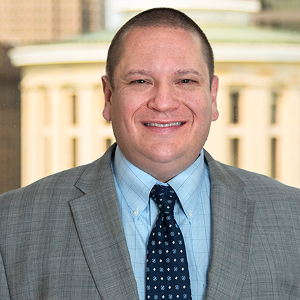Has an employer refused to hire you, fired you, or otherwise discriminated against you based on your current or past alcohol or drug addiction? You may be protected from discrimination under the Americans with Disabilities Act. Your Columbus, Ohio employment attorney breaks down what you need to know about the ADA’s protection against discrimination for current or past drug addiction.
The ADA was enacted to ensure people with disabilities are protected from employment discrimination. An employee is considered “disabled” if he or she:
- Has a physical or mental impairment that substantially limits one or more major life activities;
- Has a history of impairment that substantially limited one or more major life activities; or
- is regarded as having an impairment that substantially limits one or more major life activities by his or her employer.
People who are addicted to alcohol or recovering from drug addiction are considered “disabled,” since addiction to these drugs substantially limits cognitive and brain function. However, whether the ADA protects you from discrimination based on current or past alcohol or drug addiction is a complicated question. The answer varies depending on (1) the type of drug in question, and (2) whether you are currently using the drug. The Ohio drug addiction discrimination laws are summarized below:
Alcohol Addiction
Addiction to alcohol is considered a disability under the ADA. However, unlike other disabilities, employees who are addicted to alcohol are not entitled to a reasonable accommodation in all situations. Employers need not provide accommodations that aid the employee’s continued alcohol addiction. For example, if an employee is frequently late for work and missing deadlines as a result of her alcohol addiction, her employer need not provide her an accommodation in the form of allowing her to arrive to work late. Employees who are addicted to alcohol are still held to the same job performance standards as everyone else.
However, an employer must grant the employee a reasonable accommodation if he or she requests time off to enroll in an alcohol rehabilitation program, unless the employer can prove that granting the accommodation would cause the company an undue hardship. In the above example, if the employee requested a leave of absence to attend rehab for her alcohol addiction, then the accommodation request would need to be granted unless the employer could show it would suffer an undue hardship or expense if the request were granted.
Illegal Use of Drugs
The ADA’s protections regarding drug addiction and the use of illegal drugs is more complex. The ADA protects employees who are (1) “in recovery” and (2) who are no longer engaging in the illegal use of drugs. The employee must prove both elements of this requirement to establish his or her drug addiction is protected under the ADA.
A person is considered “in recovery” if he or she (1) has ceased using drugs, (2) is participating in a supervised rehabilitation program, or (3) has been successfully rehabilitated. This requires proof that the employee is not currently engaging in the illegal use of drugs, since the ADA does not protect those who are currently engaging in the illegal use of drugs.
A person’s illegal use of drugs is considered “current” if his or her use has occurred recently enough to cause a reasonable person to believe the employee’s drug addiction is an ongoing issue. This test is highly fact-specific, and each person’s situation is evaluated on a case-by-case basis.
Example: An employee struggles with heroin addiction and fails a drug test at work. A week later, she tells her employer she has since stopped using heroin, but she has not enrolled in any rehabilitation program. If the employee is fired for her positive drug test, a court would likely find the employee’s drug use was still “current,” despite the employee’s statement, since the last time she used heroin was only a week ago and she had not yet enrolled in rehab.[1]
“Illegal” use of drugs includes the use of drugs that are themselves illegal, such as heroin or cocaine, and the abuse of legal drugs. This can occur if a person takes medication that is not prescribed to them or takes prescribed drugs in a manner that is different from how they were directed by their physician. If you are prescribed medication to treat your drug addiction, such as Suboxone or Methadone, and you are taking it as prescribed, then your use of these drugs is not considered “illegal” and your employer may not discriminate against you on this basis. However, if you become addicted to any prescription drug and take more than is prescribed to you, then you lose the ADA’s protections for drug addiction.
Each situation is different, and a thorough review of the facts is necessary since the laws regarding alcohol and drug addiction discrimination vary based on your specific situation. If you believe you have been discriminated against based on current or past alcohol or drug addiction, or if you have other questions about your employment, please reach out for a free consultation.
Ohio Drug Addiction and Discrimination Lawyers
[1] See Disbennett v. Millcraft Paper Co., No. 3:08-cv-041, 2008 U.S. Dist. LEXIS 114247, *8–9 (S.D. Ohio Aug. 27, 2008)



























